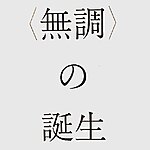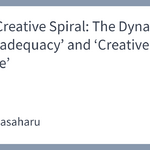Rentaro Taki is a pivotal composer from the dawn of Western music in Japan, renowned for works like “Hana” (Flower), “Kōjō no Tsuki” (The Moon over the Ruined Castle), and “Hakone Hachiri,” pieces familiar to many through school music classes. Tragically, Taki passed away at the young age of 23 from tuberculosis, which he contracted while studying in Leipzig. Due to the prevailing stigma surrounding the disease at the time, many of his original manuscripts were unfortunately destroyed.
Among his surviving works, which are mostly songs, there are two piano pieces. One of them is “Urami – Bedauernswerth” (Regrettable). Composed after his return to Japan, the piece is said to reflect the deep sorrow and frustration of his circumstances. As one of the first substantial piano works by a Japanese composer and a late work by Taki employing Western compositional techniques acquired abroad, “Urami” is considered a significant starting point in the history of Japanese piano music.
Please listen to this performance by pianist Shinya Kiyozuka.
The music conveys a depth of emotion that words cannot fully capture—frustration, anguish, grief, and even a sense of resignation. Realizing that this final piece contains all the sensibility and skill of the young 23-year-old Taki fills me with a profound sense of respect.
The Discovery of the Autograph Manuscript for “Urami”
In 2019, news broke that an autograph manuscript of “Urami” had been discovered in Oita Prefecture. The manuscript was found among the belongings of Kiichi Suzuki, a close friend of Rentaro Taki from his time at the Tokyo Music School. This discovery was more than just the recovery of a lost document; it shed new light on Taki’s creative process as a composer and offered a deeper understanding of him as an artist.
The found manuscript included three different versions of “Urami,” revealing the process through which Taki constructed his sounds and refined the work towards completion. It showed not a man consumed by illness and writing at the mercy of negative emotions, but rather an artist logically and technically assembling notes, striving to create a world of beautiful resonance he sought.
Pianist Kōsuke Kita has released a video analyzing this discovered manuscript.
In this analysis video, Kita explores the charm of “Urami” by tracing Taki’s actual revision process in the ending and middle sections, based on the dates written on the manuscript. The video also highlights subtle revisions characteristic of a pianist, revealing that the final version features a slightly fuller harmony at the opening.
A more detailed analysis by Mr. Kita is available in his research paper, which can be read at the following link:
The title “Urami” has generally been interpreted in a tragic context of “regret” or “unfinished business.” However, the meticulous revisions revealed by the autograph manuscript offer a new perspective. Taki was not simply wallowing in grief; it is believed he was grappling with the “artistic challenge” of how to express his complex inner conflicts and emotions using the techniques of Western music until the very end.
This suggests that his music was not a mere imitation of the West, but an active exploration to sublimate his emotions as a Japanese individual into a Western form. As Mr. Kita states in his analysis, it seems that Taki, at a young age, possessed a stark strength as a musician—one that allowed him to treat even his own tragic circumstances and feelings of grief as material for musical expression.
It is often said when discussing Taki, but one cannot help but wonder what kind of music he would have created had his talent not been cut short by illness. I encourage you to explore his other works that hint at his immense talent and potential, such as his other piano piece “Menuett,” the song “Tsuki” (Moon), and the songs “Wakare no Uta” (Farewell Song) and “Mizu no Yukue” (Where the Water Goes), composed shortly after his sorrowful return to Japan.


